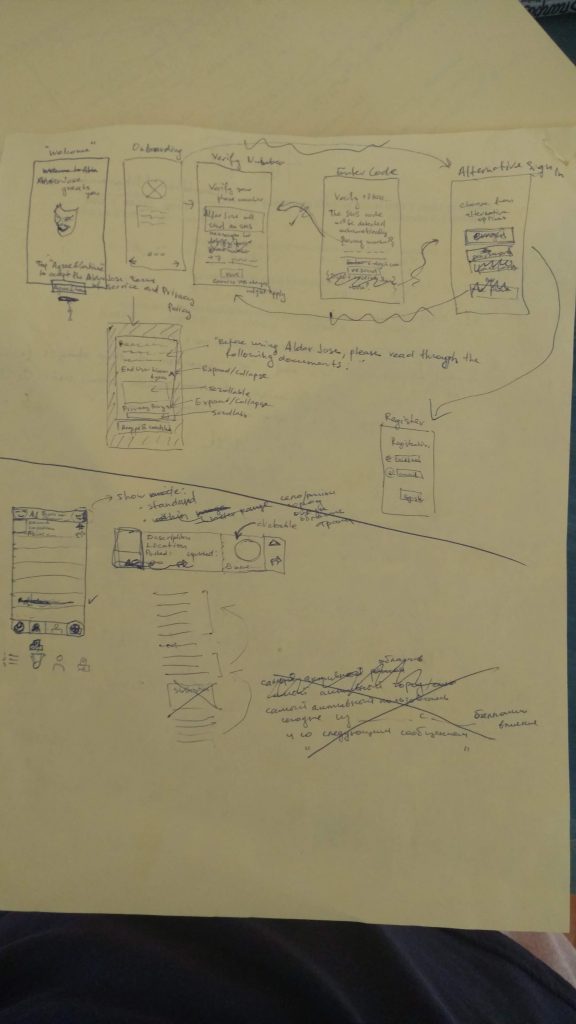In 2018 I felt that I didn’t have enough OOP experience and decided to try myself in app development.
Context: In Kazakhstan like in many post-Soviet countries, local government officials are not elected, but are assigned from the central government (which is, frankly, often corrupt and de-facto authoritarian). Consequently, the incentive landscape for the local officials is skewed towards pleasing the central government apparatus instead of the needs of the local population. This often leads to inefficient government, infrastructure problems, corruption, and lack of accountability. “Akim” (the city mayor) realizes that he or she can be replaced at a whim, even if they were to govern efficiently. They also realize that since their occupation is temporary, they have to use every opportunity to abuse their position and make money under the table.
The idea: To disrupt this incentive landscape and increase local government accountability, it would be great to have an app for reporting visible infrastructural problems by the users and listing these in a ranked stack for a local town/city/region. Example case: a user spots a pothole, street sewage problem, trash removal problem, or other municipality and infrastructure issues and 1) snaps a picture; 2) selects a category from a short scroll-list and sends an anonymous report. The app records the gps location within 3-10 meters of the reported problem, time, date, and links it to an accountable person from the database (demo-database attached). If the app receives many reports of the same category from the same location range, it is capable to merge several reports into one and giving it a higher rank score. The app outsources the merging decision making to random fraction of users by sending pop-up catcha-style prompts. The users are rewarded with points for their participation activity (reporting, merge decision making, voluntarily watching ad videos etc.). The users can use these points to boost certain reports higher in the rank. All users see one and the same stack of reported problems for their region and the app tracks how long particular reports persisted unresolved and how long on average it takes to resolve a problem.
Incentives for the local government officials: they understand that their position is uncertain and they want to be away from the spotlight. If a given problem is on top of the list of the reported problems for too long, the population starts developing a bad impression of the official and they risk becoming a scape-goat of the central government if some event triggers local outrage. Thus they want to keep their names as far away from the spotlight as possible. which potentially encourages sooner problem resolution (assuming a critical number of daily app users).
Incentives for the users: centralized government inherited from Soviet Union is extremely ineffective and people have almost no venues to communicate their needs or affect local politics. An app like this can be a huge attractor for a discontent population with virtually no alternatives in their authoritarian countries. Users can earn participation points by reporting problems, answering merge requests, or watching as many ad videos voluntarily as they want. They can use these points to promote problems that are most relevant to them higher in the stack as those are more likely to be resolved faster.
Monetization: In order to sustain the ongoing improvement and maintenance of the app, it is crucial to not forget about the monetary side of this idea. Short video adds give the most earnings per million views than any other advertisement on iOS or Android. It is important to also not annoy the users with constant pop-ups. Thus it would be optimal to give users an option to voluntarily watch unlimited short add videos for user reward points that the users can then use to promote their problem reports.
Current status: as of September 2018, I had created a database of ALL local government officials in entire Kazakhstan, with their work phone numbers, pictures, and office locations using open access data. I had connected my app to Google Maps API to extract address location based on GPS coordinates, Facebook and Google sign-in system APIs, Firebase database API to store all the data. I had a first draft of the app ready, but had to shelf the product for later because I couldn’t delay my graduate studies. I have since abandoned the project, but I feel that I will return to it at some point.



